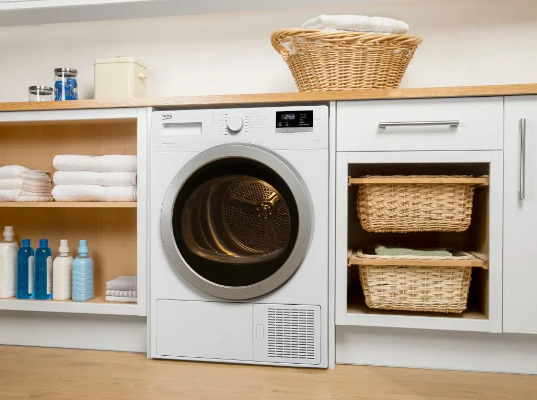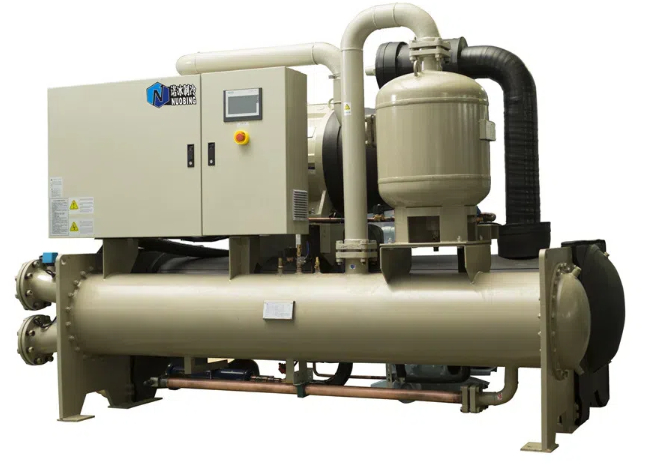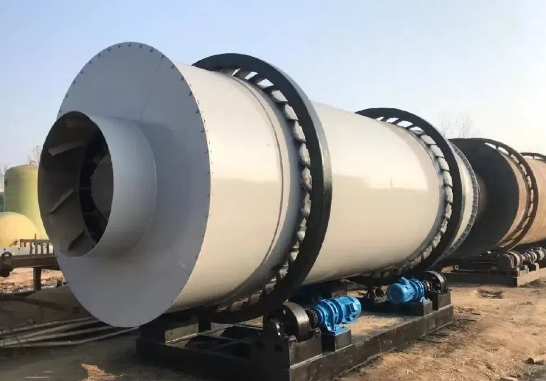
Content Menu
● Introduction: The Evolution of Laundry Technology
● Understanding Heat Pump Tumble Dryer Technology
>> How Does a Heat Pump Dryer Work?
● Energy Efficiency: The Hallmark of Heat Pump Tumble Dryers
>> The Impact on Running Costs
● Gentle Care for Your Clothes
● Environmental Benefits of Heat Pump Dryers
>> Reduced Carbon Footprint
● Comparing Heat Pump Dryers to Conventional Models
>> Heat Pump vs. Vented Dryers
>> Heat Pump vs. Condenser Dryers
● Pros and Cons of Heat Pump Tumble Dryers
>> Pros:
>> Cons:
● Choosing the Best Heat Pump Tumble Dryer
● Installation and Maintenance
>> Installation Tips:
>> Maintenance Requirements:
● The Future of Laundry: Smart Heat Pump Dryers
● Making the Switch: Is a Heat Pump Tumble Dryer Right for You?
● Conclusion: Embracing Efficient Laundry Solutions
● Frequently Asked Questions
>> 1. How much can I save on energy bills with a heat pump tumble dryer?
>> 2. Are heat pump tumble dryers suitable for all types of fabrics?
>> 3. How long do heat pump tumble dryers typically last?
>> 4. Do heat pump dryers require special installation?
>> 5. Are heat pump tumble dryers noisy?
Introduction: The Evolution of Laundry Technology
In the ever-evolving world of home appliances, the heat pump tumble dryer has emerged as a game-changer in laundry care. This innovative technology is transforming the way we dry our clothes, offering a more energy-efficient and eco-friendly alternative to conventional dryers. But what exactly is a heat pump tumble dryer, and why is it gaining such popularity among homeowners and environmentally conscious consumers?
Understanding Heat Pump Tumble Dryer Technology
At its core, a heat pump tumble dryer is a sophisticated appliance that uses advanced heat pump technology to dry clothes. Unlike traditional dryers that rely on high-temperature heating elements, heat pump dryers operate on a closed-loop system that recycles and reuses heat, making them significantly more energy-efficient.
How Does a Heat Pump Dryer Work?
The process begins when warm air is circulated through the drum, absorbing moisture from the clothes. This moist air then passes through an evaporator, which cools it and condenses the water vapor. The collected water is either pumped out or stored in a container for later removal.
The now-cooled air moves through a compressor, which raises its temperature. This reheated air is then recirculated back into the drum to continue the drying process. This closed-loop system ensures that heat is constantly recycled, minimizing energy waste and maximizing efficiency.

Energy Efficiency: The Hallmark of Heat Pump Tumble Dryers
One of the most compelling reasons to consider a heat pump tumble dryer is its exceptional energy efficiency. These appliances can use up to 50% less energy compared to conventional condenser or vented dryers. This significant reduction in energy consumption not only leads to lower electricity bills but also contributes to a reduced carbon footprint.
The Impact on Running Costs
While the initial purchase price of a heat pump tumble dryer may be higher than that of a traditional dryer, the long-term savings on energy costs can be substantial. Over the lifespan of the appliance, many users find that the reduced running costs more than offset the higher upfront investment.
Gentle Care for Your Clothes
Heat pump tumble dryers operate at lower temperatures compared to conventional dryers. This gentler drying process has several benefits for your clothes:
1. Reduced risk of shrinkage
2. Less wear and tear on fabrics
3. Better preservation of colors and textures
4. Suitable for a wider range of delicate materials
By treating your garments with more care, heat pump dryers can help extend the life of your clothes, potentially saving you money on replacements in the long run.
Environmental Benefits of Heat Pump Dryers
In an era where environmental consciousness is paramount, heat pump tumble dryers offer a more eco-friendly solution for laundry care. Their reduced energy consumption directly translates to lower greenhouse gas emissions, making them an excellent choice for environmentally aware consumers.
Reduced Carbon Footprint
By choosing a heat pump dryer, you're not just saving on energy bills; you're also contributing to a greener planet. The significant reduction in energy use means less reliance on fossil fuels and a smaller carbon footprint for your household.
Comparing Heat Pump Dryers to Conventional Models
To fully appreciate the advantages of heat pump tumble dryers, it's essential to understand how they stack up against traditional vented and condenser dryers.
Heat Pump vs. Vented Dryers
Vented dryers expel warm, moist air outside through a vent or hose. While they are generally less expensive upfront, they are less energy-efficient and require installation near an external wall. Heat pump dryers, on the other hand, don't need external venting, offering more flexibility in terms of placement within your home.
Heat Pump vs. Condenser Dryers
Condenser dryers, like heat pump models, don't require external venting. However, they are less energy-efficient than heat pump dryers. While condenser dryers may be cheaper to purchase initially, their higher running costs can make them more expensive in the long term.

Pros and Cons of Heat Pump Tumble Dryers
As with any technology, heat pump tumble dryers come with their own set of advantages and disadvantages. Understanding these can help you make an informed decision about whether this type of dryer is right for your household.
Pros:
1. High energy efficiency
2. Lower running costs
3. Gentler on clothes
4. No need for external venting
5. Environmentally friendly
6. Suitable for a wide range of fabrics
Cons:
1. Higher initial purchase price
2. Longer drying times compared to conventional dryers
3. May require more maintenance (e.g., cleaning filters and heat exchangers)
4. Can be more complex to repair due to advanced technology
Choosing the Best Heat Pump Tumble Dryer
With the growing popularity of heat pump technology, many leading appliance manufacturers now offer heat pump tumble dryer models. When selecting the best one for your needs, consider the following factors:
1. Capacity: Ensure the dryer can handle your typical laundry loads.
2. Energy rating: Look for models with high energy efficiency ratings.
3. Features: Consider additional functions like smart connectivity, multiple drying programs, and anti-crease options.
4. Brand reputation: Research reliable brands known for quality and good customer support.
5. Warranty: Check the warranty terms, as heat pump dryers can be more expensive to repair.
Installation and Maintenance
While heat pump tumble dryers don't require external venting, proper installation and regular maintenance are crucial for optimal performance and longevity.
Installation Tips:
1. Ensure adequate ventilation in the room where the dryer is installed.
2. Place the dryer on a level surface to minimize vibrations and noise.
3. Consider professional installation, especially if you're unfamiliar with appliance setup.
Maintenance Requirements:
1. Clean the lint filter after every use to maintain efficiency.
2. Regularly clean the heat exchanger (usually every 20-30 cycles) to prevent buildup.
3. Empty the water container if your model doesn't have a direct drain option.
4. Periodically check and clean the condenser unit.
The Future of Laundry: Smart Heat Pump Dryers
As technology continues to advance, we're seeing the emergence of smart heat pump tumble dryers. These cutting-edge appliances offer features like:
1. Wi-Fi connectivity for remote control and monitoring
2. Smartphone apps for cycle customization and energy usage tracking
3. Integration with smart home systems
4. Automatic detergent and softener dispensing
5. Self-diagnosing capabilities for maintenance alerts
These smart features not only enhance convenience but also contribute to even greater energy efficiency by optimizing drying cycles based on load size, fabric type, and user preferences.
Making the Switch: Is a Heat Pump Tumble Dryer Right for You?
Deciding whether to invest in a heat pump tumble dryer depends on various factors, including your budget, laundry habits, and environmental concerns. If you prioritize energy efficiency, gentler fabric care, and long-term cost savings, a heat pump dryer could be an excellent choice for your home.
Consider your household's specific needs:
1. Frequency of use: High-volume users may see more significant long-term savings.
2. Space constraints: Heat pump dryers offer more flexible placement options.
3. Environmental impact: If reducing your carbon footprint is a priority, these dryers are a great option.
4. Budget: Weigh the higher upfront cost against potential long-term savings.
Conclusion: Embracing Efficient Laundry Solutions
Heat pump tumble dryers represent a significant leap forward in laundry technology, offering a perfect blend of energy efficiency, fabric care, and environmental responsibility. While they may require a higher initial investment, the long-term benefits in terms of energy savings, clothes preservation, and reduced environmental impact make them an attractive option for many households.
As we move towards a more sustainable future, technologies like heat pump dryers play a crucial role in reducing our energy consumption and environmental footprint. By understanding the benefits and considerations of these innovative appliances, you can make an informed decision about whether a heat pump tumble dryer is the right choice for your laundry needs.
Whether you're renovating your laundry room, replacing an old dryer, or simply looking to upgrade to a more efficient appliance, consider the many advantages that a heat pump tumble dryer can bring to your home. With their ability to save energy, protect your clothes, and contribute to a greener planet, heat pump dryers are more than just a trend – they're a smart investment in the future of laundry care.

Frequently Asked Questions
1. How much can I save on energy bills with a heat pump tumble dryer?
Energy savings can be significant, with many users reporting up to 50% reduction in energy consumption compared to conventional dryers. The exact savings will depend on your usage patterns and local energy costs, but over time, these savings can substantially offset the higher initial purchase price.
2. Are heat pump tumble dryers suitable for all types of fabrics?
Yes, heat pump dryers are generally suitable for a wide range of fabrics, including delicates. Their lower operating temperatures make them gentler on clothes compared to conventional dryers. However, always check garment care labels and use appropriate cycle settings for best results.
3. How long do heat pump tumble dryers typically last?
With proper maintenance, a quality heat pump tumble dryer can last 10-15 years or more. This longevity, combined with energy savings, contributes to their cost-effectiveness over time.
4. Do heat pump dryers require special installation?
While they don't require external venting like traditional vented dryers, heat pump dryers do need proper ventilation in the room where they're installed. They can be placed in various locations within your home, offering more flexibility than vented models. Professional installation is recommended to ensure optimal performance.
5. Are heat pump tumble dryers noisy?
Generally, heat pump tumble dryers are quieter than conventional dryers due to their lower operating temperatures and gentler drying process. However, noise levels can vary between models, so it's worth checking user reviews or testing the appliance in-store if noise is a concern for you.












